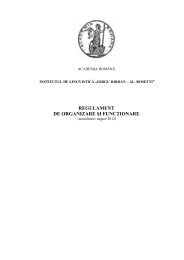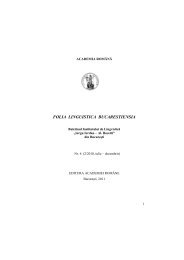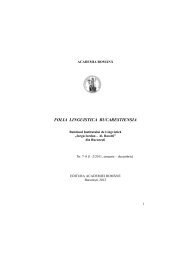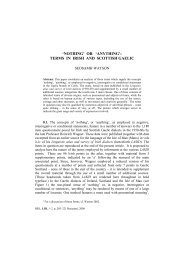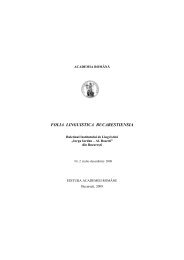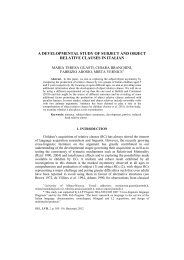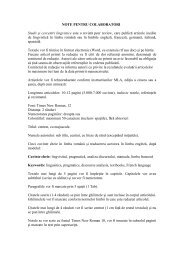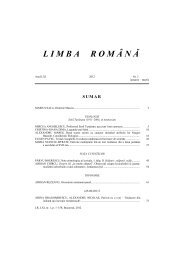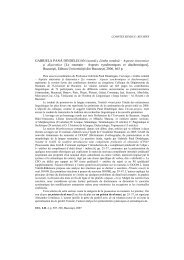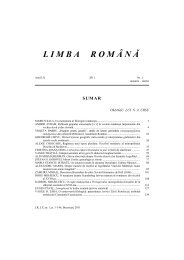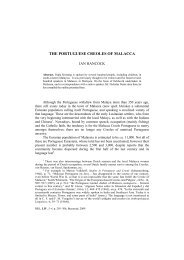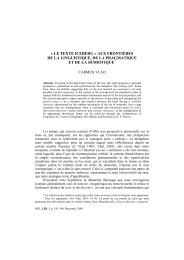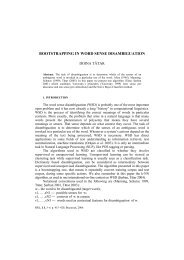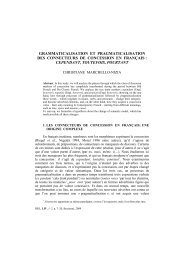PSEUDO-REDUPLICATION, REDUPLICATION AND REPETITION ...
PSEUDO-REDUPLICATION, REDUPLICATION AND REPETITION ...
PSEUDO-REDUPLICATION, REDUPLICATION AND REPETITION ...
You also want an ePaper? Increase the reach of your titles
YUMPU automatically turns print PDFs into web optimized ePapers that Google loves.
246Andrei A. Avram 22(84) 'moyo ‘water’ + 'ena ‘eye’ > 'moyo'ena ‘tear’ (Wellens 2003: 84)This similarity between reduplicated forms and compounds is not surprisingon the assumption that total “reduplication is a kind […] of compounding” (Booij2005: 36).As for Juba Arabic, most reduplicated forms preserve stress on each member,which “may be indicative of their separate word status” (Miller 2003: 296).However, Miller (2003: 296) also states that “some speakers” 25 assign a singlestress to reduplicated verbs formed from a base of the CVCV type:(85) 'ǧere ‘run’ > 'ǧere-ǧere ‘run very fast’ (Miller 2003: 295)Reduplicated verbs formed from monosyllabic bases – not discussed byMiller (2003) – also appear to have a single stress, on their first member, judgingby the only relevant example:(86) ǧa ‘come’ > 'ǧa-ǧa (no gloss provided) (Miller 2003: 294)Finally, deverbal nominals, formed 26 by conversion and stress shift, also havea single stress, on their second member:(87) 'gata-gata ‘cut into pieces’ > gata-'gata ‘cutting into pieces’ (Miller 2003: 295)To conclude, the occurrence of a single stress in such reduplicated formssuggests that they form a single phonological word.9. <strong>REDUPLICATION</strong> IN ARABICIn Classical Arabic there are “schemas containing reduplicated biconsonantalstructures, of an onomatopoeic origin” (Anghelescu 2004: 159), which yieldpseudo-reduplicated forms. Maas (2005: 404) notes that “doubling is frequentlyfound in expressive forms, although it cannot be identified as a productive deviceof expressive word formation” and underscores the fact that “most words with thisformation have an expressive component, but not all”:(88) a. bulbul ‘nightingale’ (Anghelescu 2004: 159)b. dardar ‘oak’ (Maas 2005: 404)c. na‘na‘ ‘mint’ (Maas 2005: 404)d. zalzala ‘shake (about the earth)’ (Anghelescu 2004: 159)25 Only 2 out of the 13 speakers recorded and/or interviewed.26 From at most disyllabic bases (see Miller 2003: 295).



